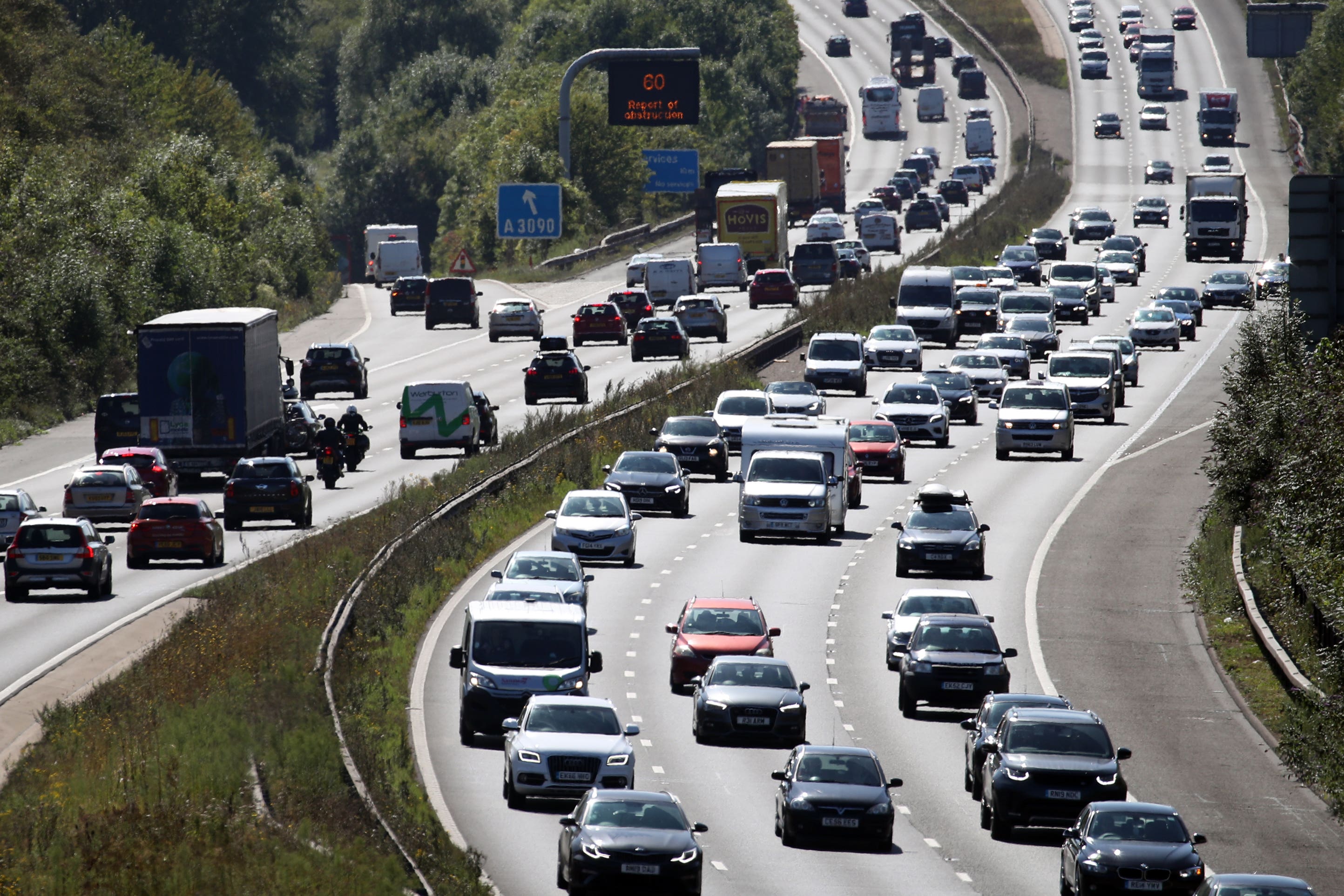Smart motorways banned by Rishi Sunak after safety concerns
Fourteen planned smart motorways are being scrapped

Your support helps us to tell the story
From reproductive rights to climate change to Big Tech, The Independent is on the ground when the story is developing. Whether it's investigating the financials of Elon Musk's pro-Trump PAC or producing our latest documentary, 'The A Word', which shines a light on the American women fighting for reproductive rights, we know how important it is to parse out the facts from the messaging.
At such a critical moment in US history, we need reporters on the ground. Your donation allows us to keep sending journalists to speak to both sides of the story.
The Independent is trusted by Americans across the entire political spectrum. And unlike many other quality news outlets, we choose not to lock Americans out of our reporting and analysis with paywalls. We believe quality journalism should be available to everyone, paid for by those who can afford it.
Your support makes all the difference.The building of new smart motorways is being cancelled as prime minister Rishi Sunak acknowledged concerns about their safety and cost.
Fourteen planned smart motorways – including 11 that are already paused and three that are earmarked for construction – will be removed from government road-building plans as a result of financial pressures and in recognition of the lack of public trust.
The Department for Transport said that the projects would have cost more than £1bn.
Last year I pledged to stop the building of all new smart motorways, and today I’m making good on that promise
But the department added that the construction of two stretches of smart motorway, at junctions six to eight of the M56 and 21a to 26 of the M6, will continue as these projects are already more than three-quarters complete.
Existing stretches will remain, but will be subject to a safety refit so that there are 150 more emergency stopping places across the network.
Around 10 per cent of England’s motorway network is made up of smart motorways.
They involve various measures aimed at managing the flow of traffic, such as the conversion of the hard shoulder into a live traffic lane and the use of variable speed limits.
But there have long been concerns about their safety, following fatal incidents in which vehicles that have stopped in live lanes on roads without a hard shoulder were hit from behind.
In January 2022, the government paused the expansion of motorways where the hard shoulder is used as a permanent live traffic lane. This was to enable five years’ worth of data to be collected to assess whether the concerns over driver safety are justified.
In his Tory party leadership campaign last summer, Mr Sunak vowed to ban smart motorways.
“All drivers deserve to have confidence in the roads they use to get around the country,” the prime minister said on Saturday. “That’s why last year I pledged to stop the building of all new smart motorways, and today I’m making good on that promise.
“Many people across the country rely on driving to get to work, to take their children to school and go about their daily lives, and I want them to be able to do so with full confidence that the roads they drive on are safe.”
Transport secretary Mark Harper said: “We want the public to know that this government is listening to their concerns.
“Today’s announcement means no new smart motorways will be built, recognising the lack of public confidence felt by drivers and the cost pressures due to inflation.”
PA


